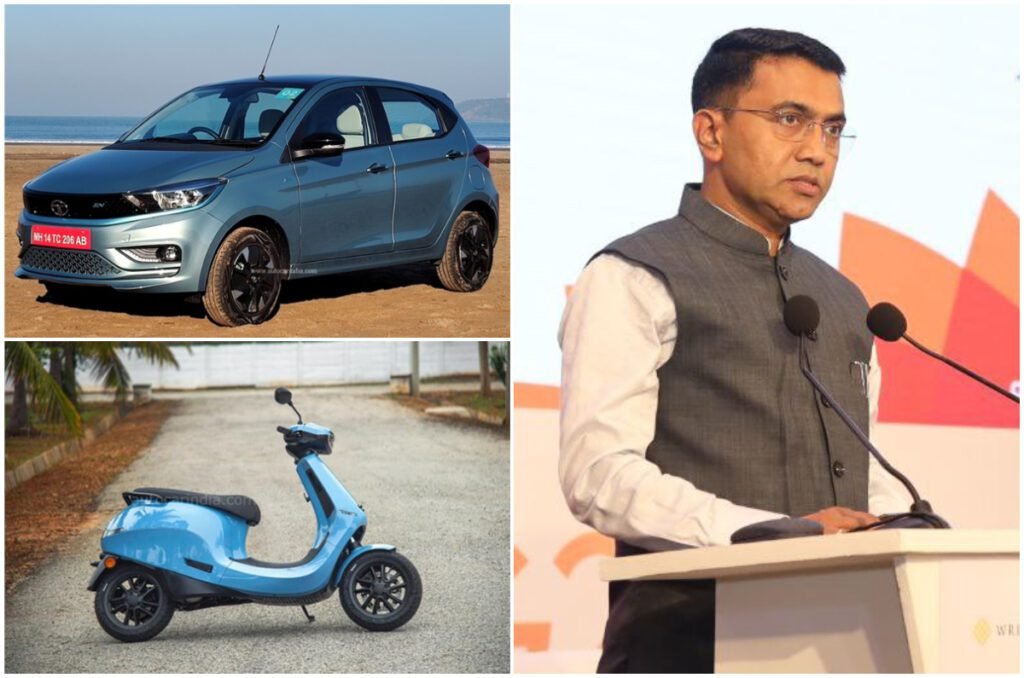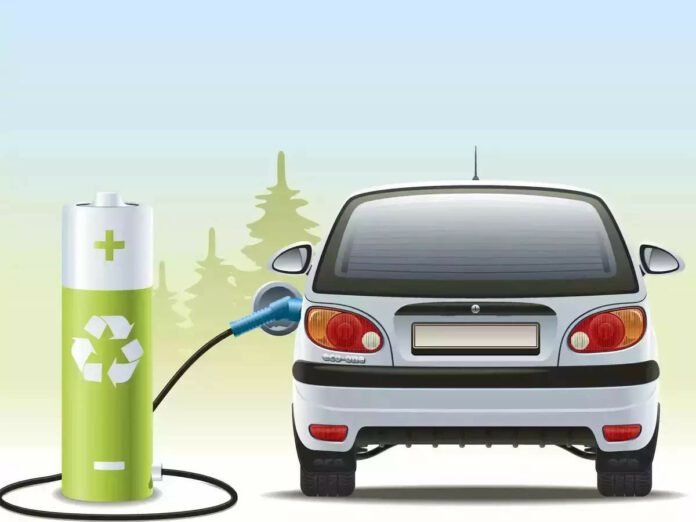Goa Chief Minister Pramod Sawant stated on Wednesday that starting in January 2024, all new tourist vehicles, rental cars, and rental motorbikes in the state will all be electric, underscoring the initiatives put forth by the state government to promote electric vehicles (EVs).
At a NITI Aayog-sponsored event during the fourth Energy Transitions Working Group Meeting in Panaji, Sawant said that all new tourist vehicles, rental automobiles, and rental bikes must be electric starting in January 2024. All permit holders that operate multiple tourist taxis, rental cars, or bicycles will also be required to convert 30% of their fleets to electric vehicles by June 2024.
What is Goa’s chief minister saying about rental EVs?
Goa, a coastline state, is ranked 15th in terms of vehicle density, according to Sawant, with 4.5 times the national average per capita vehicle ownership. “Goa, a popular travel destination worldwide, receives more than 85 lakh visitors annually. This is a significant source of carbon emissions in the state because there are so many taxis, car-rental agencies, and buses that transport tourists. According to a recent study, the operation of vehicles is responsible for 40% of all carbon emissions produced in Goa, he stated.
According to Sawant, the Goa Electric Mobility Promotion Policy 2021 was created by the state government with the goal of making the state a benchmark for EV adoption internationally, supported by world-class infrastructure for ICE vehicle conversion to EVs, to convert 50% of boat ferries to electric by 2025, to convert 100% of other marine vessels to hydro, and to generate 10,000 new direct and indirect jobs by that date.
According to Sawant, in order to meet this goal, the state government of Goa announced the EV Promotion Scheme and started initiatives like the EV Concessional Charging Infrastructure Policy 2021 to support the EV ecosystem in the state.
The primary goals of the strategy are to guarantee that by 2025, at least 30% of all new vehicles registered in Goa each year will be electric. The percentage of EV sales has climbed by 47 times from 0.2% to 9.4% of all vehicle sales since the start of the programmes. Goa is the fourth-highest selling state for EVs among Indian states, he continued.

Amitabh Kant, the G20 Sherpa for India, suggested that the country should aim for complete electrification of two- and three-wheelers by 2030. According to Kant, it’s crucial that India urbanises in a compact, dense manner with a focus on livability. Seventy-five percent of all automobiles in India are two-wheelers. India must start with electrifying two- and three-wheeled vehicles, and by 2030, we should have completely electrified all two- and three-wheeled vehicles. By 2030, 65% of all buses operated by public transportation agencies should be electric. Fix the goal, then move backward, he said.
In order to emphasise that electric vehicles will eventually replace petrol and diesel engines, Kant stated that the global market for electric cars had reached the 10 million level. Nearly 18% of all new automobiles sold each year throughout the world are electric. While just 15% of cars sold in Europe and 10% in the USA are electric, 60% of automobiles sold in China are. India’s trajectory will diverge significantly from that of the United States and Europe.
In order to reach the goal, Kant emphasised the necessity of a “clear policy framework” and stressed the importance of developing affordable funding for EVs. The lack of a secondary market for these vehicles is one of their biggest problems. It’s challenging for the financiers. NBFCs handle the majority of the financing for two- and three-wheeled vehicles. In order to create a secondary sale market, the NITI Aayog should consult with NBFCs, he said. If a market emerges, more lending [for these vehicles] would follow.
A strong infrastructure for EV charging should be built in all cities, according to Kant. “The switch from ICE to EVs is imminent. India, the world leader in two-wheelers, may lose out on the vehicle business if it does not take that step forward. Future transportation will be electric. India’s best chance to dominate the automotive industry globally is now. Since it accounts for 49% of the manufacturing industry and 8% to 9% of employment, the automobile sector is extremely important for India, the expert added.


